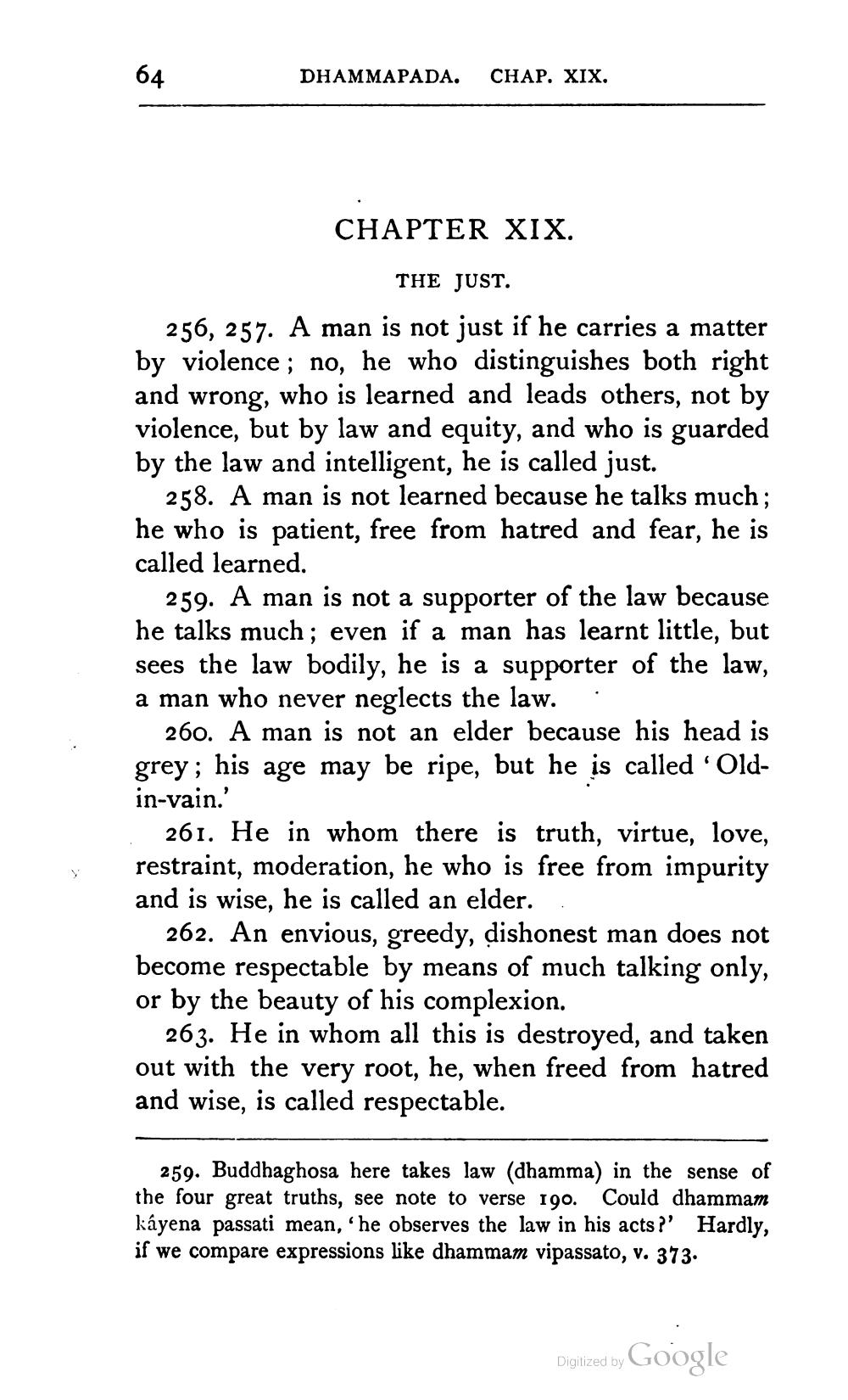________________
DHAMMAPADA. CHAP. XIX.
CHAPTER XIX.
THE JUST.
256, 257. A man is not just if he carries a matter by violence; no, he who distinguishes both right and wrong, who is learned and leads others, not by violence, but by law and equity, and who is guarded by the law and intelligent, he is called just.
258. A man is not learned because he talks much; he who is patient, free from hatred and fear, he is called learned.
259. A man is not a supporter of the law because he talks much; even if a man has learnt little, but sees the law bodily, he is a supporter of the law, a man who never neglects the law..
260. A man is not an elder because his head is grey; his age may be ripe, but he is called 'Oldin-vain.'
261. He in whom there is truth, virtue, love, restraint, moderation, he who is free from impurity and is wise, he is called an elder...
262. An envious, greedy, dishonest man does not become respectable by means of much talking only, or by the beauty of his complexion.
263. He in whom all this is destroyed, and taken out with the very root, he, when freed from hatred and wise, is called respectable.
259. Buddhaghosa here takes law (dhamma) in the sense of the four great truths, see note to verse 190. Could dhammam kayena passati mean, 'he observes the law in his acts?' Hardly, if we compare expressions like dhammam vipassato, v. 373.
Digitized by Google




